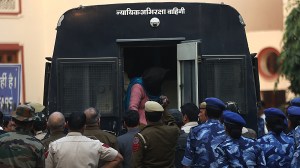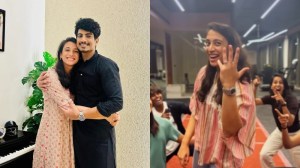Rana cleared of 26/11,held guilty of Denmark plot
Chicago Court: Also found guilty of supporting Lashkar
A Federal jury yesterday found Pakistani-Canadian businessman Tahawwur Rana guilty of supporting plans to attack a Danish newspaper that published cartoons of the Prophet Muhammad but acquitted him of the more serious charge of helping to plot the 2008 terrorist attacks in Mumbai.
After two days of deliberations,the jury also found Rana,49,guilty of a third charge,which involved providing support to the Pakistani militant group Lashkar-e-Toiba.
No sentencing date was set. Each of the counts,for which Rana has been convicted,carries a maximum imprisonment of 15 years,Ranas attorney Patrick Blegan said.
The message should be clear to all those who help terrorists, United States Attorney Patrick J. Fitzgerald said in a statement. We will bring to justice all those who seek to facilitate violence…We are disappointed in the not guilty verdict on the Mumbai attacks.
The mixed verdict deals a blow both to Rana,who faces a possible sentence of 30 years in prison,and the government,which expressed disappointment at the jurys decision involving the Mumbai charge.
The Indian government voiced disappointment over Ranas acquittal on the 26/11 charges.
We are disappointed that Rana was acquitted on the count of conspiracy to provide material support to the Mumbai terrorist attacks, Secretary,Internal Security,in the Ministry of Home Affairs,U K Bansal,said in a statement in Delhi.
In Bangalore,External Affairs Minister S M Krishna said we are not entirely satisfied with the verdict and pointed out that the fact remains that throughout the last few months,the trial has (shown) substantial linkages between the two (Rana and Pakistani-American terrorist David Headley) facing the trial and on Mumbai attack.
Prosecutors had built their case largely on the testimony of Headley,who had confessed to playing a major role in the Mumbai attacks and testified against Rana to avoid the death penalty and extradition to India.
Headleys testimony made headlines around the world when he accused not just Rana but also Pakistani intelligence officers of helping to support the Mumbai attacks. The accusations threatened to exacerbate tensions among the US,Pakistan and India,especially after US Special Forces discovered Osama bin Laden hiding out in a Pakistani military town.
Ranas lawyers focused their defense on shredding Headleys credibility by laying out the deceit that has defined most of his adult life. Headley,the 50-year-old son of a Pakistani diplomat and a Philadelphia socialite,had a substantial rap sheet long before becoming a terrorist,having previously been arrested for drug trafficking,and then serving as an informant for the Drug Enforcement Agency as a way to avoid lengthy prison sentences.
Headley confessed to scouting the locations for the attacks in Mumbai,which left more than 160 people dead,including six Americans. Rana and Headley had been friends since high school. Rana was accused of using his immigration business to provide cover for Headleys surveillance activities.
Rana,a father of three,was accused of providing similar support for a plan to attack a Danish newspaper. But that attack was never carried out.
Members of Ranas family cried when the verdict was read. Rana,however,showed no visible emotion. One of his lawyers said of him,I think hes in shock.
Another lawyer,Patrick Blegen,said of the jury: Obviously were disappointed. We think they got it wrong.
Fitzgerald said a decision about Headleys fate remained a long way away.
He also justified the controversial plea bargain deal cut with Headley that spared him the death penalty and extradition to India,saying that not doing the pact would have been a terrible mistake.
I am convinced that we would have made a terrible mistake if we did not sit down with Headley and get all the
information that we did and came from them, Fitzgerald said.
EMMA G. FITZSIMMONS & GINGER THOMPSON



- 01
- 02
- 03
- 04
- 05




























